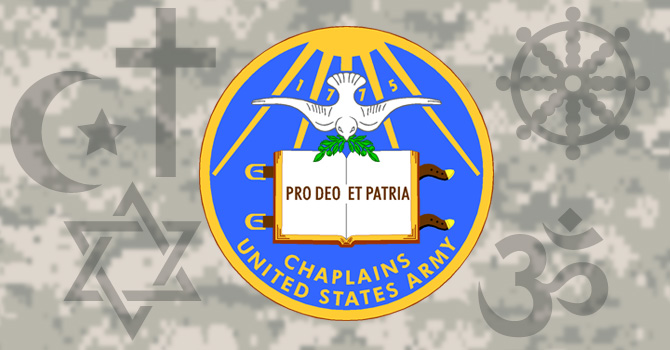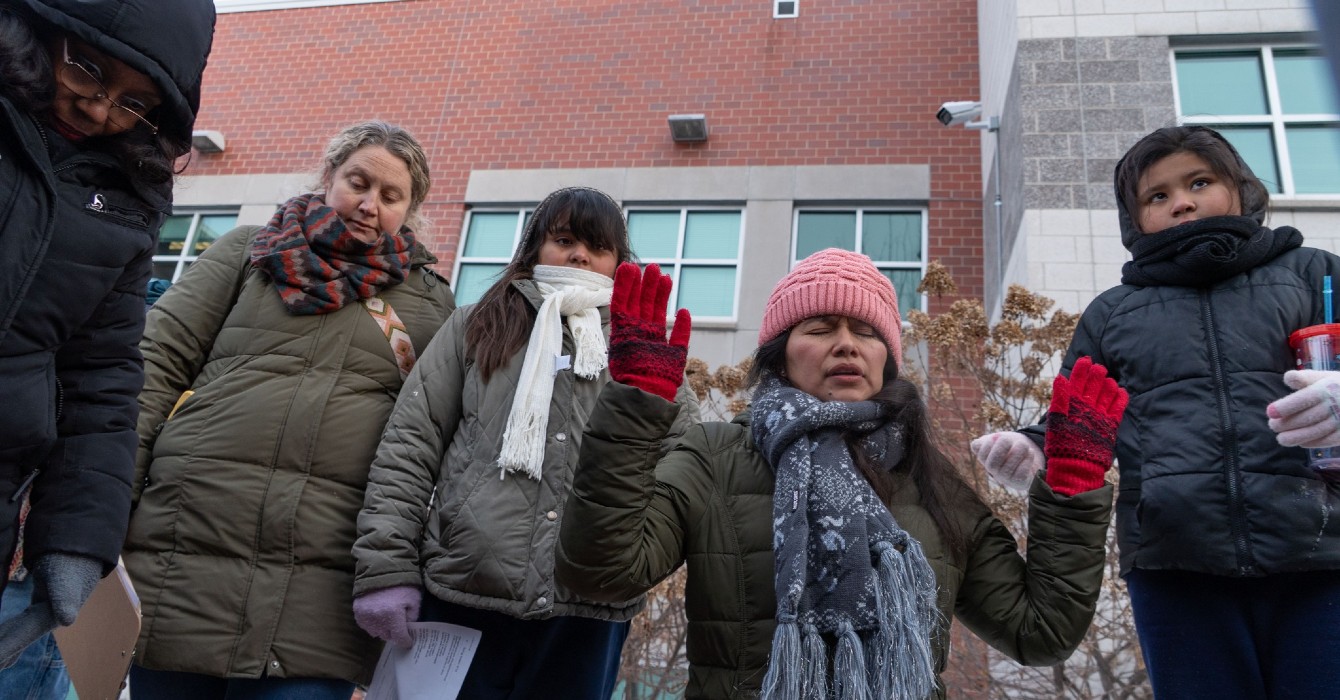About every six months, I receive the same email, forwarded to me each time from a different but always very angry acquaintance. He (for some reason, it’s almost always a he) has read or heard somewhere that military chaplains have been banned from praying in Jesus’ name. He wants to know what he can do to help me fight for my right to pray as a Christian.
When I first saw this email many years ago, I was intrigued. As a Christian minister, how else could I possibly pray except as a Christian? Though I had studied political science as an undergraduate, I failed to see the link between the establishment clause of the U.S. Constitution and any prayer that I might offer at mandatory military ceremonies.
When I made the transition from divinity school to the Army’s Chaplain Basic Officer Leader Course, I was taught that I would be juggling two hats. As a Protestant pastor, I would lead worship services and Bible studies, and as a battalion chaplain, I would counsel soldiers and give invocations at official ceremonies.
The distinction between the two has to do with whether or not soldiers have been ordered to attend. If the occasion is a church service, I preach and pray from the standpoint of my faith tradition. But if it’s an event with mandatory attendance, then I pray in a way that casts the widest possible net, mindful of the spectrum of religions that may be present.
This training was particularly helpful when I had to offer invocations while deployed in Afghanistan in 2011-12. Every ceremony was attended not only by American military personnel and civilians from a variety of religious backgrounds but also by our Afghan partners.
In a culture where women are not permitted to lead men in prayer or anything else, the significance of my gender was not lost on me. Yet there I was, standing at the podium, leading Afghans and Americans together in prayer. I can only imagine the insult I may have caused if I had put my own religious freedom above that of everyone else in the crowd.
Years ago, a couple of Harvard law students decided to sue the Army over its use of military chaplains, arguing that their presence, funded by taxpayers, was an infringement of the establishment clause. In the end, military chaplains were not disbanded, because their role, by and large, isn’t to establish any one religion but to preserve the religious freedom of individual service members.
Regular pastors, rabbis and imams obviously do not have full access to those who serve in the military, particularly when troops are deployed. So the best way to ensure religious freedom of these citizens in uniform is to have chaplains in place as guardians.
Sure, sometimes chaplains haven’t done this very well. They have forgotten where the line is, or even purposely disregarded the distinction between being a guardian and promoting a particular religion. But this has never been due to a failure of Army doctrine or training.
The Army has always been very clear: the American people pay me to protect soldiers’ constitutional rights and ensure their religious freedom. This is acted out and embodied in a variety of ways.
One day, in my current assignment as a chaplain at Brooke Army Medical Center in San Antonio, Texas, I catch a nurse on her lunch break. She is pregnant with her first child and wants to talk. She reminds me that she left the church years ago but is wondering whether I could offer a blessing when her baby is born.
Another day, I sit in silence with a family who has made the decision to turn off all the life-support machines. When the family is ready, I gather them around the bed. We lay our hands on their loved one, and I pray about Jesus’ promise of life beyond death.
Doing this work well means that I always have to consider the needs of my patient or soldier above my own. If I reverse these priorities, I lose sight of why I have been given this position in the first place. It is a very Pauline approach to ministry, I now realize.
In his first letter to the Corinthians, Paul talks about becoming a slave in order to win more slaves, or becoming subject to the law, even though he is not really under the law, so that he can relate to those under the law. In order to reach out to the weak, he becomes weak. He says, “I have become all things to all people, that I might by all means save some. I do it all for the sake of the gospel, so that I may share in its blessings” (1 Corinthians 9:22-23 NRSV).
I don’t have to say “Jesus” in order to act with Jesus in mind.
As a Christian, I have been shaped by these words. Whatever I need to be, whatever it takes, I am a willing servant. This is what I have been called to do as an Army chaplain and, even more, as a Christian. Being hospitable to someone with a faith different from mine could never distract me from the one who directs my path. I don’t have to say “Jesus” in order to act with Jesus in mind.
A few months ago, I went to see a retired Army chaplain who had been admitted to our hospital because of a bad fall. His nurses told me that he was in and out of consciousness and it might not be worth a visit, because he wouldn’t even know I was there. Since he was a regular attendee of the small Presbyterian church where I was a substitute preacher, I decided to stop by anyway.
His eyes were closed as I stood over his bed. But as soon as I said his name, he looked directly into my eyes.
“I am so glad you are here,” he said. “We need to get ready for the service. I know everyone has a different opinion about what’s right, but the most important thing is that everyone knows how much he or she is welcome -- by us and by God. After that, everything else will fall into place.”
And then he closed his eyes. I stood there dumbfounded. It felt like he had passed the torch to me, one old soldier at the end of his race to a younger one at the beginning of hers.
Just like he said: all are welcome. We can thank a very generous God for that. In our best moments, the Army Chaplain Corps lives up to this idea. We participate in ceremonies bookended by prayers offered by a Christian and a Muslim. We foster an environment of religious freedom, where the same chapel structure will hold Christian, Jewish and Muslim services, all in the span of a weekend. We attempt to practice tolerance and celebrate our common ground. It’s not always easy, but our commitment to the Constitution guides us back to one another whenever we forget our roles.
And indeed, I shouldn’t need the Constitution to hold me in check. If I am living as Paul has taught me, practicing tolerance for the sake of the other, I will have plenty of room in my heart to welcome everyone. I won’t have to pray in Jesus’ name in order for my faith to be known. My hospitality will point toward Jesus. No one will mistake the one who is behind it all.







